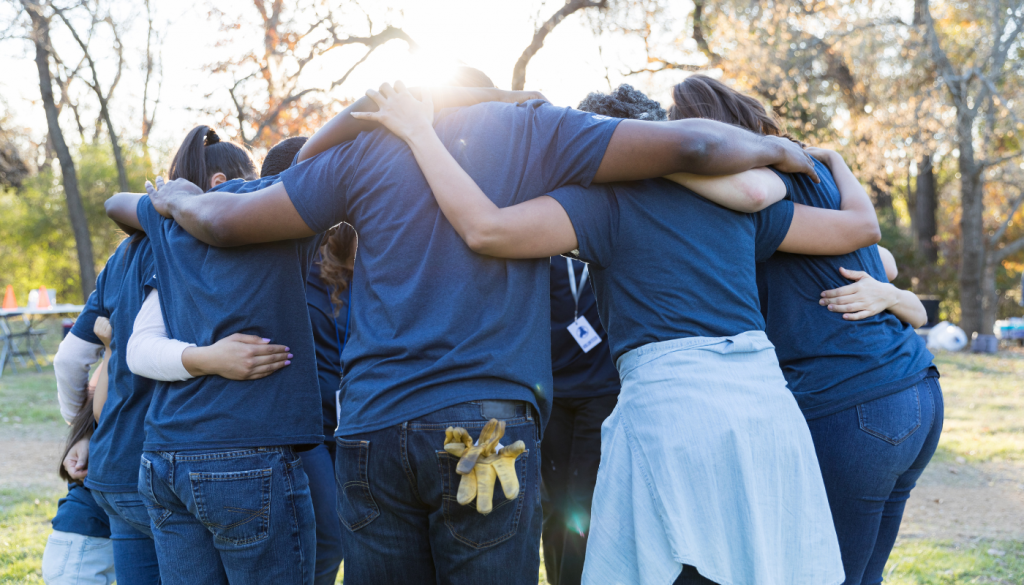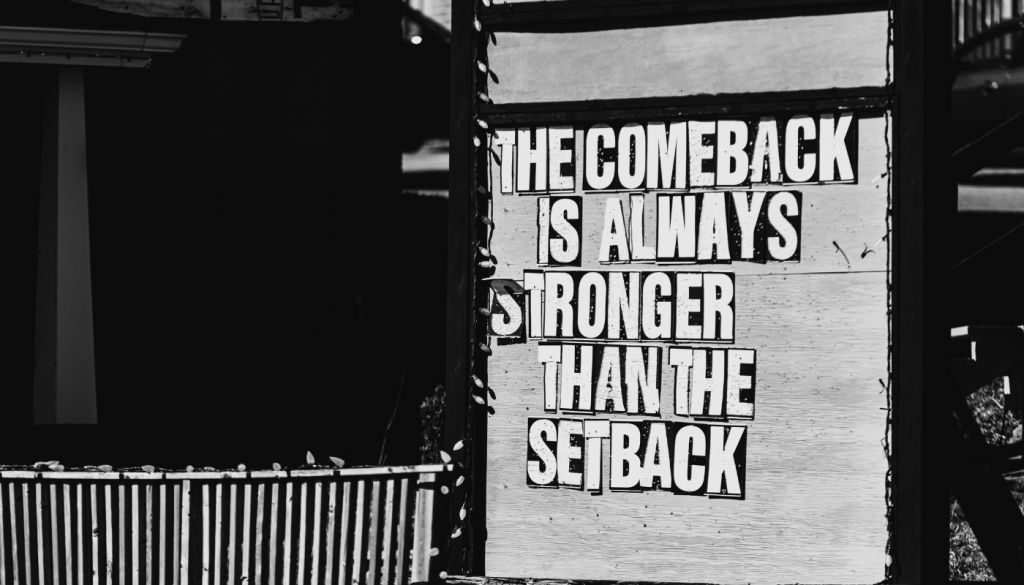New Year, New Horizons: Balancing Resolutions and Mental Wellness
As we embark on the journey of setting New Year's resolutions, the first and perhaps most crucial step is self-awareness and reflection. This introspective process is more than a mere recapitulation of the past year’s events; it is an opportunity to delve deeply into our experiences, understanding our actions, reactions, and the motives behind them.
Key takeaways
- Embrace self-awareness through reflective practices to build meaningful and impactful resolutions rooted in personal growth.
- Foster positive mental health by setting realistic goals, incorporating incremental objectives, and allowing flexibility in timelines.
- Harness the power of community, involving others in your journey, to create a supportive network that enhances motivation, accountability, and the overall pursuit of objectives.
Posted on 8 Jan 2024
Written by
Dr Jared Ng, Connections MindHealth
As 2024 unfolds, it brings with it the tradition of setting resolutions—a practice steeped in hope and the desire for change. This ritual, while often viewed with optimism, holds a deep and intricate connection with our mental health. The journey of setting and pursuing New Year’s resolutions, as observed in experiences and stories, demonstrates how these personal commitments can significantly shape our mental well-being.
A Family Conversation on Resolutions
Over a family lunch on New Year’s Day, a casual conversation about resolutions unfolded into a meaningful dialogue about hopes and aspirations. Each of my children, in their unique way, shared their goals for the year, painting a vivid picture of their individual ambitions and the paths they hoped to tread. (Of course, I had to ask them…it’s not something they would bring up to their parents spontaneously!)
The eldest, with his O-level examinations happening at the end of the year, spoke earnestly about his desire to achieve academic excellence. My wife and I told him that his goal, while commendable, was not just about grades. It was a journey involving self-discipline, time management, the balancing of stress and studies…essentially, hard work is needed. His resolution opened up discussions about maintaining a healthy mindset amidst academic pressures, and the importance of self-care in the pursuit of academic goals.
Our daughter, with her own academic ambitions, aimed to improve her performance in school. Her resolution, though similar in nature to her brother’s, was uniquely hers. It brought to light different challenges she faced and her personal approach to overcoming them. Her goal emphasized the need for a tailored strategy that accounted for her learning style, interests, and how she could find joy and satisfaction in her educational journey.
Our youngest, with the simplicity and enthusiasm characteristic of his age (and birth order), declared his intention to learn badminton (and beat everything else in the school). This resolution, while seemingly less academic, was no less significant. It underscored the importance of physical activity, not just for physical health but for mental and emotional well-being too. His goal reminded us of the joy found in learning new skills, the development of physical coordination, and the value of perseverance and resilience in sports.
This family conversation highlighted the diversity of resolutions and the different forms they can take. It wasn’t just about setting goals but understanding the underlying motivations, the challenges they may present, and the personal growth they encourage.
Self-awareness and Reflection: The Cornerstone of Meaningful Resolutions
As we embark on the journey of setting New Year’s resolutions, the first and perhaps most crucial step is self-awareness and reflection. This introspective process is more than a mere recapitulation of the past year’s events; it is an opportunity to delve deeply into our experiences, understanding our actions, reactions, and the motives behind them. This understanding is the bedrock upon which meaningful and impactful resolutions are built.

Reflective practice involves looking back at the past year with a critical, yet compassionate eye. Ask yourself questions like: What were my achievements and why were they successful? What challenges did I face and how did I respond to them? Which habits served me well and which ones hindered my progress? The answers to these questions provide invaluable insights into your personal growth trajectory.
Through reflection, we can identify what truly matters to us. Sometimes, in the hustle of daily life, our actions and goals may drift away from our core values. Use this time to realign. Do your resolutions resonate with what you genuinely value and aspire to in life? For example, if family is a central value, how do your resolutions strengthen family bonds? If personal growth is your focus, how do your goals foster this growth?
Analysing both your successes and setbacks from the previous year is helpful. Successes teach us about our strengths and what strategies work for us. Setbacks, on the other hand, are not failures but lessons that help us grow. They pinpoint areas where we can improve and often reveal new paths or approaches we hadn’t considered before.
The insights gained from self-reflection help in tailoring resolutions that are not only realistic but also deeply personal and relevant to your life. This customization makes the goals more engaging and achievable. If the past year showed you a newfound passion for health, perhaps a resolution might involve learning more about nutrition. If you discovered a tendency to overcommit, a resolution might be about learning to say no and prioritizing your time.
Finally, reflection allows us to embrace change. As you reflect, you may notice how you’ve evolved over the past year. This realization is empowering and can fuel your motivation for the resolutions ahead. It reminds us that we are constantly in a state of becoming, and our resolutions are a testament to our commitment to continual growth and self-improvement.
Setting and Navigating Realistic Goals for Positive Mental Health
Setting realistic goals is vital for fostering positive mental health. It involves balancing ambition with practicality, ensuring that goals are challenging yet achievable based on one’s current abilities and life circumstances. This balance prevents feelings of frustration and inadequacy associated with overly ambitious goals, as well as the lack of stimulation from goals that are too easily attainable.

In the context of personal or professional development, it’s crucial to set incremental objectives. For instance, in improving physical health, instead of immediately training for a marathon, a more manageable goal for a beginner might be to start with shorter runs and gradually increase the distance. This approach not only makes the goal more achievable but also mitigates the risk of injury and burnout.
Similarly, in professional development, rather than aiming to land a top management position right away, a more practical goal for someone early in their career would be to seek gradual advancements. This could include taking on more responsibilities, seeking mentorship, or acquiring new skills. These smaller, more realistic goals pave the way for larger achievements while maintaining motivation and a sense of progress.
When pursuing personal hobbies or skills, such as learning a musical instrument, setting a goal to become proficient within an unrealistically short timeframe can be discouraging. A more effective approach is to aim for smaller milestones, like learning a few chords or songs initially, and then progressing to more complex pieces. This gradual progression encourages a steady and enjoyable learning process.
The timelines attached to goals are equally important. Unreasonable deadlines can create stress and pressure, negatively impacting mental health. Conversely, well-considered timeframes foster a sense of control and progress. Breaking down larger objectives into smaller milestones is a highly effective strategy. For example, in an academic setting, instead of focusing solely on a final exam result, setting milestones like completing specific chapters or mastering particular concepts can be more beneficial.
Moreover, flexibility in timeframes is crucial to accommodate life’s unpredictability. Rigidity in timelines can lead to unnecessary stress, particularly when unexpected challenges arise. Allowing room for adjustment ensures that goals remain realistic and achievable, even in changing circumstances.
The Power of Community: Involving Others in Our Journey
The role of community in the pursuit of personal goals is profound and often underappreciated. Sharing our goals with others doesn’t just provide a support system – it creates a network of accountability and encouragement that can be pivotal in maintaining our mental health and in achieving our objectives.

When we open up about our aspirations, we invite others to partake in our journey. This act of sharing can significantly bolster our motivation, especially during times when our resolve might wane. For instance, a person aiming to improve their fitness might find it beneficial to join a local running club or a workout group. The camaraderie and mutual encouragement found in such groups can transform a solitary endeavor into a communal experience, making the pursuit more enjoyable and sustainable.
In a family setting, discussing resolutions can strengthen bonds and build a sense of collective purpose. When family members are aware of each other’s goals, they can offer specific support, celebrate milestones together, and even collaborate on shared objectives. This involvement creates a nurturing environment where each person’s goals are valued and supported, reinforcing the feeling of being part of a team.
In the workplace or among friends, sharing goals can also foster a supportive atmosphere. Colleagues and peers can provide valuable insights, advice, and encouragement. They can serve as sounding boards, offer different perspectives, and share experiences that might be helpful. This level of engagement not only enriches the journey towards achieving a goal but also contributes to a sense of belonging and community.
Moreover, involving others in our goals can lead to new connections and opportunities. Networking with people who share similar interests or objectives can open doors to resources, knowledge, and experiences that we might not have encountered otherwise.
In addition to providing motivation and support, the community also offers accountability. Knowing that others are aware of our goals and are cheering us on can be a powerful motivator. It adds a layer of responsibility and commitment to our endeavours, pushing us to stay on track and strive towards our objectives.
Perseverance and Resilience: Learning from Setbacks
In the journey toward achieving our goals, encountering setbacks is a universal experience (Just think of how many times you had the same resolutions each year because nothing much happened for the last 300-something days). These moments, often perceived as obstacles, are actually pivotal in fostering resilience and self-compassion, two critical components of mental health. Recognizing setbacks not as failures but as valuable learning opportunities can transform our approach to challenges and enhance our ability to persevere.
This mindset of growth and learning is vital in building perseverance. When faced with setbacks, the key is to engage in reflective thinking. This involves analysing what led to the setback, what can be learned from it, and how strategies can be adjusted moving forward. Such reflection turns challenges into lessons that inform our future actions and decisions. For instance, if someone is struggling to maintain a new exercise routine, a setback can be an opportunity to re-evaluate and perhaps find a more suitable type of exercise, adjust the frequency of workouts, or identify and overcome barriers like time management.

Developing resilience, the ability to bounce back from setbacks, is equally important. This involves maintaining a positive attitude and understanding that setbacks are not reflections of personal inadequacy. It’s about embracing the journey, with its ups and downs, and recognizing that each step, regardless of direction, is part of the process of growth. Resilience is nurtured through experiences of overcoming difficulties, and it empowers us to face future challenges with confidence.
Self-compassion plays a crucial role in this process. It’s about treating ourselves with the same kindness and understanding that we would offer to a friend in similar circumstances. Practicing self-compassion means acknowledging that setbacks are part of being human and not indicative of our worth or potential. This approach helps in mitigating feelings of self-criticism and disappointment that often accompany setbacks.
Furthermore, sharing our challenges with others can be incredibly beneficial. It not only provides emotional support but also helps in gaining different perspectives. Others can offer advice, share their own experiences of overcoming similar obstacles, or simply provide a listening ear. This shared experience can be a powerful source of comfort and encouragement.
Incorporating Mental Health Goals: Prioritizing Inner Well-being
Well, as a psychiatrist, I cannot emphasize enough the importance of integrating mental health objectives into our New Year’s resolutions. While goals often focus on physical health, career advancement, or skill development, prioritising our mental and emotional well-being is equally crucial. This year, let’s make a conscious effort to set resolutions that nurture our mental health, recognizing that a healthy mind is foundational to achieving all other goals.
Mental health is an integral part of our overall well-being. It influences how we think, feel, and behave in daily life. By setting mental health goals, we acknowledge its significance in our lives and take proactive steps towards maintaining and enhancing our mental state.
Mental health goals can vary widely, depending on individual needs and situations. Here are some suggestions for mental health resolutions:
- Practicing Daily Meditation: Commit to a daily practice of meditation. Even a few minutes a day can significantly reduce stress, improve concentration, and promote a sense of peace and well-being.
- Seeking Therapy: If you’ve been contemplating therapy, make this the year to start. Therapy can provide invaluable insights into your thought processes, behaviors, and emotions, helping you navigate challenges more effectively.
- Regular Mental Health Check-ins: Schedule regular check-ins with yourself or a mental health professional. These check-ins can help monitor your emotional state and identify any areas needing attention.
- Learning and Practicing Self-Care: Dedicate time to learn and practice self-care activities. Whether it’s reading, taking a relaxing bath, or spending time in nature, find activities that replenish and rejuvenate you.
- Improving Sleep Habits: Set a goal to improve your sleep habits. Quality sleep is critical for mental health, affecting mood, energy levels, and overall cognitive function. One of my friends just sent me an article about the link between sleep and brain connectivity! Read here.
- Building Emotional Resilience: Focus on building emotional resilience by engaging in activities that strengthen your ability to cope with stress, such as mindfulness exercises, journaling, or developing a gratitude practice.
- Reducing Screen Time: Aim to reduce screen time, especially before bedtime. Excessive exposure to screens can impact mental health, disrupting sleep patterns and increasing feelings of anxiety and depression.
Incorporating these mental health goals into our New Year’s resolutions is not just an option; it’s a necessity. By doing so, we not only improve our mental well-being but also enhance our capacity to achieve other goals. Remember, only with a healthy mind can you better navigate life’s challenges and embrace its opportunities.
Conclusion
In conclusion, as we embrace “New Year, New Horizons,” the journey of balancing resolutions with mental wellness becomes deeply personal. Family conversations, self-reflective practices, and commitment to realistic goals all play a vital role in shaping this experience. By involving our community and learning from setbacks, we foster a support system that nurtures resilience and growth.
As a psychiatrist deeply invested in mental health, I advocate for integrating mental well-being into our resolutions. This approach isn’t just a professional recommendation; it’s a personal commitment to nurturing a healthy mind, essential for navigating life’s complexities.
Let’s step into this new year with a focus on holistic growth, recognizing that our mental health is the cornerstone of fulfilling our ambitions and achieving a balanced, enriched life. Here’s to a year of meaningful progress and heartfelt transformations!

